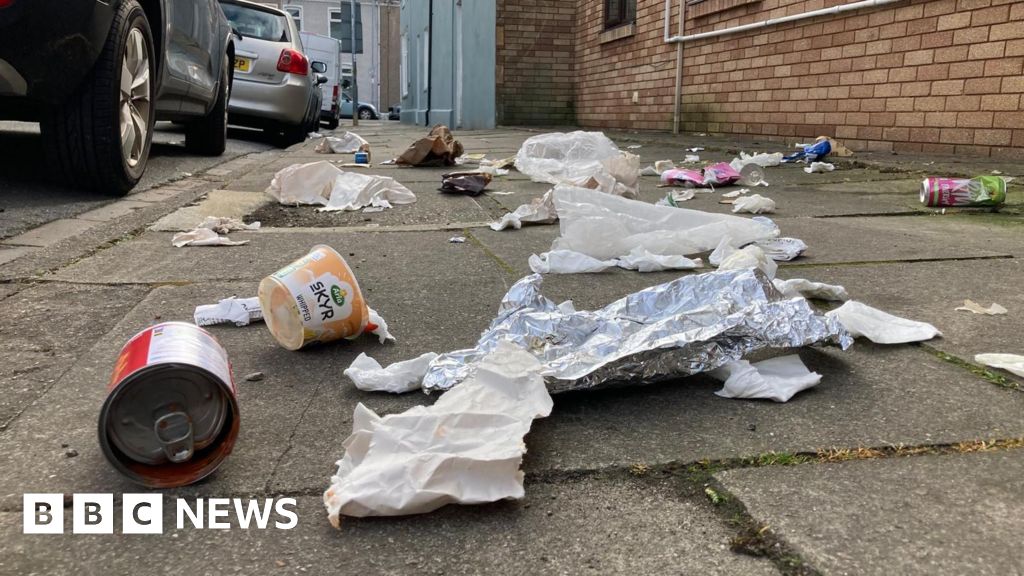ARTICLE AD BOX
Environmental campaigners have expressed disappointment after the government confirmed it would reject almost all the changes made to the Environment Bill by the House of Lords.
The changes included greater protection for ancient woodland, and a legal duty on water companies to reduce sewage damage to rivers.
The Commons will debate later whether to accept the Lords' amendments.
However, without ministers' support they are likely to be rejected by MPs.
The Greener UK coalition said the government's decision was "hugely disappointing," especially ahead of this month's COP26 climate summit.
But the government said it would be bringing forward its own changes to the bill, to demonstrate "global leadership" before the conference in Glasgow.
The government says the bill - which was published in 2019 - is designed to improve air and water quality, tackle plastic pollution, restore wildlife, and protect the climate.
Some of its measures apply only in England, or in England and Wales - but there are a number of UK-wide provisions.
The law sets up a new independent watchdog - the Office for Environmental Protection - to monitor progress on improving the environment.
During the bill's passage through the House of Lords, peers voted for an amendment which sought to strengthen the watchdog's powers.
They also voted to reverse a government move to exempt defence, national security and fiscal policy from a requirement to consider environmental principles when making policies.
Image source, Getty Images
Image caption, The government is under pressure to burnish its green credentials ahead of COP 26Other cross-party amendments would put a place a binding deadline on reducing harmful particles in the air to WHO levels by 2030, and compel the government to meet interim environmental targets, in addition to long-term ones.
However, on Tuesday Environment Secretary George Eustice formally recommended MPs reject almost all of the proposals.
Ruth Chambers from the Greener UK coalition said the decision was "hugely disappointing".
However, she welcomed the government's decision to compromise on one Lords amendment, by enabling charges for single-use plastic bags to be extended to other single use items.
'Status quo of inaction'
Campaign group Surfers Against Sewage said it was "astonishing that, in this critical decade for the environment, the government is opting out of amendments designed to better protect the planet and all its precious inhabitants.
"Instead of stepping up to the challenge and opportunity to truly be the greenest, most progressive nation, they seem to be siding with a status quo of inaction."
Beccy Speight, chief executive of the RSPB, accused the government of "falling short of its pledge to leave the natural environment in a better state than it inherited it".
She urged the government to commit to "a goal of halting and reversing the loss of our wildlife, with regular binding milestones so we can all see the progress being made".
COP26 climate summit - The basics
- Climate change is one of the world's most pressing problems. Governments must promise more ambitious cuts in warming gases if we are to prevent greater global temperature rises.
- The summit in Glasgow is where change could happen. You need to watch for the promises made by the world's biggest polluters, like the US and China, and whether poorer countries are getting the support they need.
- All our lives will change. Decisions made here could impact our jobs, how we heat our homes, what we eat and how we travel
A spokesperson for the Department for the Environment, Food and Rural Affairs said the "landmark" bill would "transform how we protect our natural environment, make better use of our resources and clean up our air and water."
"It is vital that the bill now completes its passage into law as soon as possible, so we can meet our commitment of leaving the environment in a better state for future generations."
The department has also pointed to new measures it added to the bill aimed at protecting aquatic environment against untreated sewage, including by placing a duty on water companies to monitor the impact of sewage discharges.
The government is under pressure to get the bill passed, having previously said it would be law before COP26 begins on 31 October.
Speaking to the i in July, Environment Minister Lord Goldsmith suggested delaying the bill could mean "weakening our hand in these extraordinarily important climate and environment negotiations".
However, time is running out to pass the bill before the summit - as both the House of Commons and House of Lords have to agree any changes first.

 3 years ago
82
3 years ago
82








 English (US) ·
English (US) ·